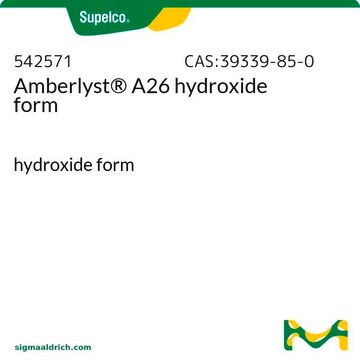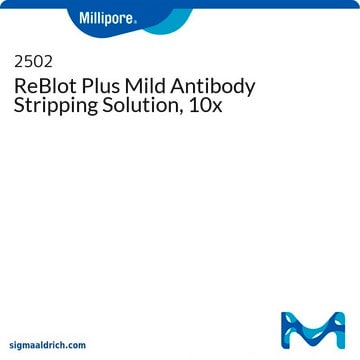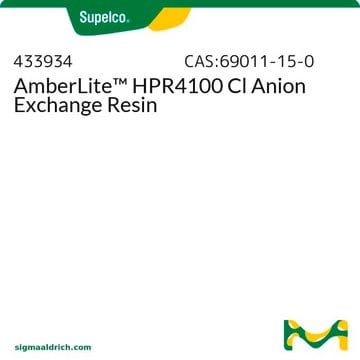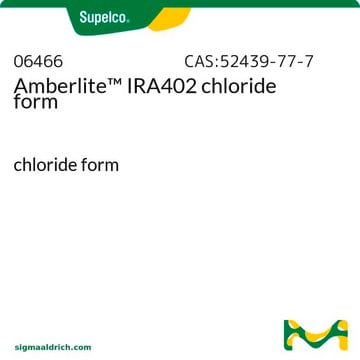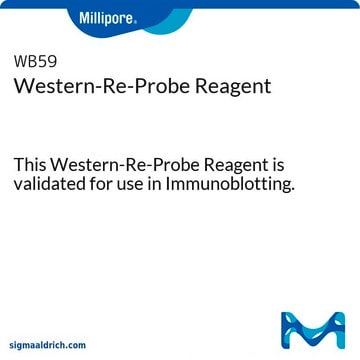06476
Ambersep 900 Ion Exchange Resin
hydroxide form, 16-45 mesh, strongly basic
Sign Into View Organizational & Contract Pricing
All Photos(1)
About This Item
Recommended Products
product name
Ambersep® 900 hydroxide form, OH--form, strongly basic
form
beads
moisture
64%
technique(s)
LPLC: suitable
loss
~75% loss on drying, 110 °C
matrix
styrene/divinylbenzene
matrix active group
quaternary ammonium
particle size
20-50 mesh
capacity
0.8 meq/mL by wetted bed volume
separation technique
anion exchange
General description
Stongly basic (type I) anion exchange resin.
Application
Ambersep 900 hydroxide resin has been used for the selective removal of chlorophyll from natural extracts with a high phytochemical content. It may be used as a catalyst for the synthesis of glycerol carbonate by using glycerol and dimethyl carbonate reactants.
Legal Information
Ambersep is a registered trademark of The Dow Chemical Company or an affiliated company of Dow
Storage Class
10 - Combustible liquids
wgk_germany
WGK 3
flash_point_f
Not applicable
flash_point_c
Not applicable
ppe
Eyeshields, Gloves
Choose from one of the most recent versions:
Already Own This Product?
Find documentation for the products that you have recently purchased in the Document Library.
A Robust and Scalable Continuous Flow Process for Glycerol Carbonate.
Van Mileghem S, et al.
Chemical Engineering & Technology, 163, 147-153 (2018)
Sebastiaan Bijttebier et al.
Food chemistry, 163, 147-153 (2014-06-11)
Alkaline saponification is often used to remove interfering chlorophylls and lipids during carotenoids analysis. However, saponification also hydrolyses esterified carotenoids and is known to induce artifacts. To avoid carotenoid artifact formation during saponification, Larsen and Christensen (2005) developed a gentler
Our team of scientists has experience in all areas of research including Life Science, Material Science, Chemical Synthesis, Chromatography, Analytical and many others.
Contact Technical Service
